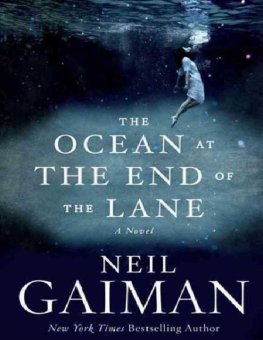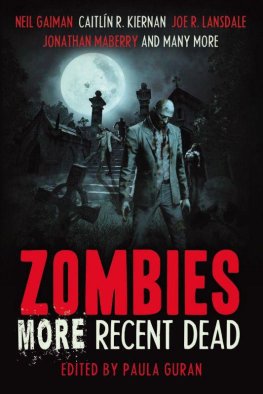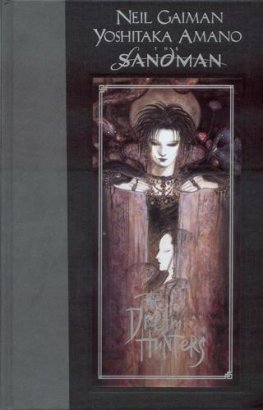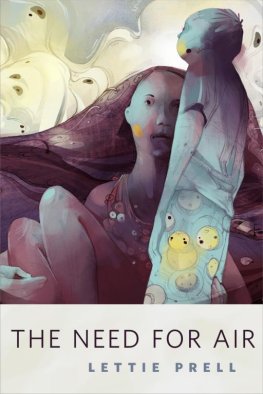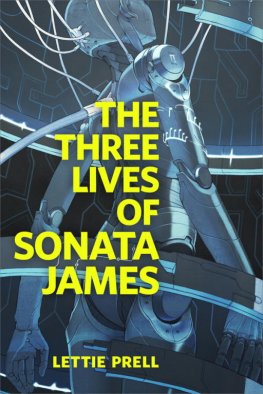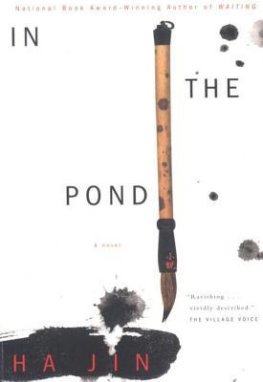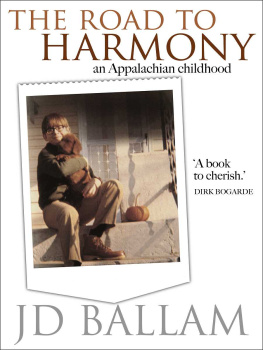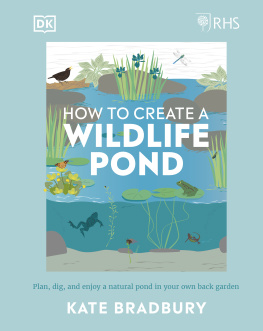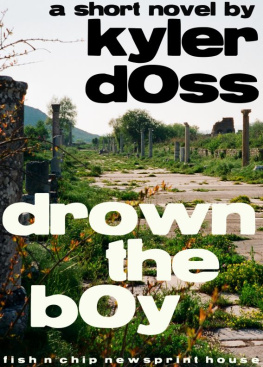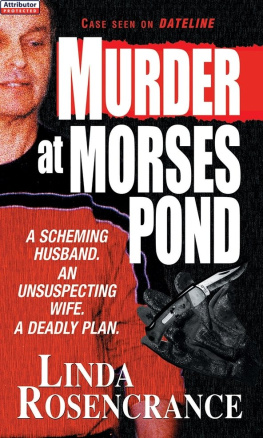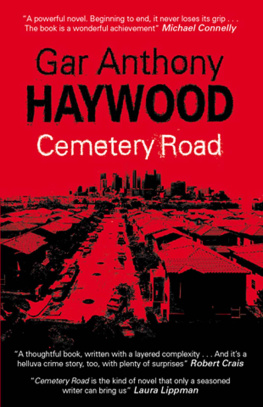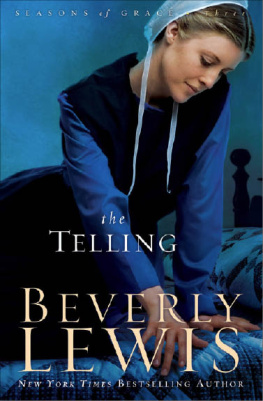The Ocean at the End of the Lane
Neil Gaiman
For Amanda, who wanted to know
I remember my own childhood vividly. . . I knew terrible things. But I knew I mustnt let adults know I knew. It would scare them.
Maurice Sendak, in conversation with Art Spiegelman,
The New Yorker, September 27, 1993
It was only a duck pond, out at the back of the farm. It wasnt very big.
Lettie Hempstock said it was an ocean, but I knew that was silly. She said theyd come here across the ocean from the old country.
Her mother said that Lettie didnt remember properly, and it was a long time ago, and anyway, the old country had sunk.
Old Mrs. Hempstock, Letties grandmother, said they were both wrong, and that the place that had sunk wasnt the really old country. She said she could remember the really old country.
She said the really old country had blown up.
I wore a black suit and a white shirt, a black tie and black shoes, all polished and shiny: clothes that normally would make me feel uncomfortable, as if I were in a stolen uniform, or pretending to be an adult. Today they gave me comfort of a kind. I was wearing the right clothes for a hard day.
I had done my duty in the morning, spoken the words I was meant to speak, and I meant them as ] spoke them, and then, when the service was done, I got in my car and I drove, randomly, without a plan, with an hour or so to kill before I met more people I had not seen for years and shook more hands and drank too many cups of tea from the best china. I drove along winding Sussex country roads I only half-remembered, until I found myself headed toward the town center, so I turned, randomly, down another road, and took a left, and a right. It was only then that I realized where I was going, where I had been going all along, and I grimaced at my own foolishness.
I had been driving toward a house that had not existed for decades.
I thought of turning around, then, as I drove down a wide street that had once been a flint lane beside a barley field, of turning back and leaving the past undisturbed. But I was curious.
The old house, the one I had lived in for seven years, from when I was five until I was twelve, that house had been knocked down and was lost for good. The new house, the one my parents had built at the bottom of the garden, between the azalea bushes and the green circle in the grass we called the fairy ring, that had been sold thirty years ago.
I slowed the car as I saw the new house. It would always be the new house in my head. I pulled up into the driveway, observing the way they had built out on the mid-seventies architecture. I had forgotten that the bricks of the house were chocolate-brown. The new people had made my mothers tiny balcony into a two-story sunroom. I stared at the house, remembering less than I had expected about my teenage years: no good times, no bad times. Id lived in that place, for a while, as a teenager. It didnt seem to be any part of who I was now.
I backed the car out of their driveway.
It was time, I knew, to drive to my sisters bustling, cheerful house, all tidied and stiff for the day. I would talk to people whose existence I had forgotten years before and they would ask me about my marriage (failed a decade ago, a relationship that had slowly frayed until eventually, as they always seem to, it broke) and whether I was seeing anyone (I wasnt; I was not even sure that I could, not yet) and they would ask about my children (all grown up, they have their own lives, they wish they could be here today), work (doing fine, thank you, I would say, never knowing how to talk about what I do. If I could talk about it, I would not have to do it. I make art, sometimes I make true art, and sometimes it fills the empty places in my life. Some of them. Not all). We would talk about the departed; we would remember the dead.
The little country lane of my childhood had become a black tarmac road that served as a buffer between two sprawling housing estates. I drove further down it, away from the town, which was not the way I should have been traveling, and it felt good.
The slick black road became narrower, windier, became the single-lane track I remembered from my childhood, became packed earth and knobbly, bone-like flints.
Soon I was driving, slowly, bumpily, down a narrow lane with brambles and briar roses on each side, wherever the edge was not a stand of hazels or a wild hedgerow. It felt like I had driven back in time. That lane was how I remembered it, when nothing else was.
I drove past Caraway Farm I remembered beingjust-sixteen, and kissing red-cheeked, fair-haired Callie Anders, who lived there, and whose family would soon move to the Shetlands, and I would never kiss her or see her again. Then nothing but fields on either side of the road, for almost a mile: a tangle of meadows. Slowly the lane became a track. It was reaching its end.
I remembered it before I turned the corner and saw it, in all its dilapidated red-brick glory: the Hempstocks farmhouse.
It took me by surprise, although that was where the lane had always ended. I could have gone no further. I parked the car at the side of the farmyard. I had no plan. I wondered whether, after all these years, there was anyone still living there, or, more precisely, if the Hempstocks were still living there. It seemed unlikely, but then, from what little I remembered, they had been unlikely people.
The stench of cow muck struck me as I got out of the car, and I walked, gingerly, across the small yard to the front door. I looked for a doorbell, in vain, and then I knocked. The door had not been latched properly, and it swung gently open as I rapped it with my knuckles.
I had been here, hadnt I, a long time ago? I was sure I had. Childhood memories are sometimes covered and obscured beneath the things that come later, like childhood toys forgotten at the bottom of a crammed adult closet, but they are never lost for good. I stood in the hallway and called, Hello? Is there anybody here?
I heard nothing. I smelled bread-baking and wax furniture polish and old wood. My eyes were slow to adjust to the darkness: I peered into it, was getting ready to turn and leave when an elderly woman came out of the dim hallway holding a white duster. She wore her gray hair long.
I said, Mrs. Hempstock?
She tipped her head to one side, looked at me. Yes. I do know you, young man, she said. I am not a young man. Not any longer. I know you, but things get messy when you get to my age. Who are you, exactly?
I think I must have been about seven, maybe eight, the last time I was here.
She smiled then. You were Letties friend? From the top of the lane?
You gave me milk. It was warm, from the cows. And then I realized how many years had gone by, and I said, No, you didnt do that, that must have been your mother who gave me the milk. Im sorry. As we age, we become our parents; live long enough and we see faces repeat in time. I remembered Mrs. Hempstock, Letties mother, as a stout woman. This woman was stick-thin, and she looked delicate. She looked like her mother, like the woman I had known as Old Mrs. Hempstock.
Sometimes when I look in the mirror I see my fathers face, not my own, and I remember the way he would smile at himself, in mirrors, before he went out. Looking good, hed say to his reflection, approvingly. Looking good.
Are you here to see Lettie? Mrs. Hempstock asked.
Is she here? The idea surprised me. She had gone somewhere, hadnt she? America?
The old woman shook her head. I was just about to put the kettle on. Do you fancy a spot of tea?
I hesitated. Then I said that, if she didnt mind, Id like it if she could point me toward the duck pond first.

